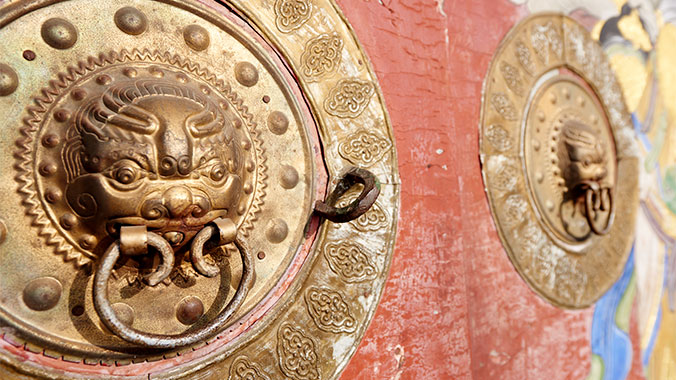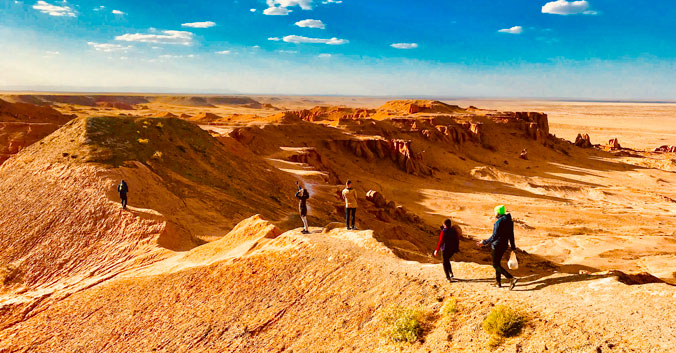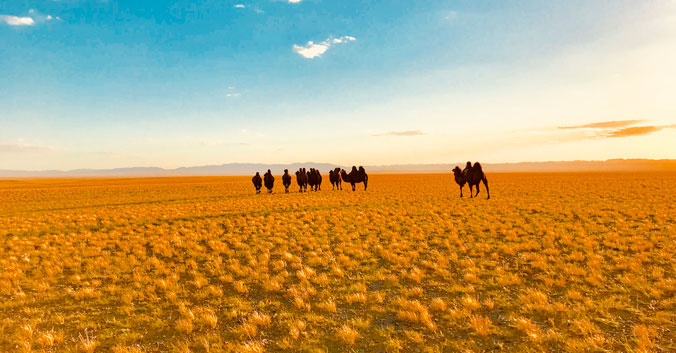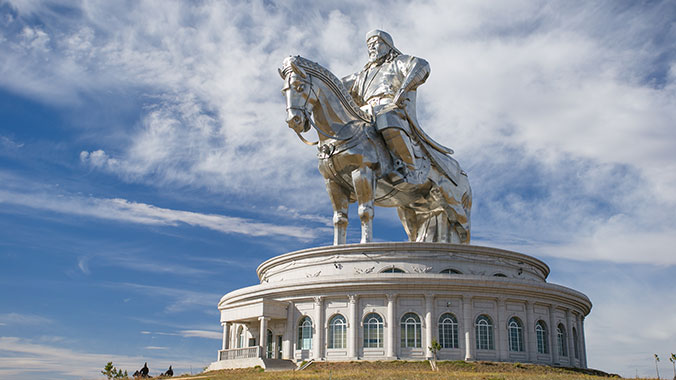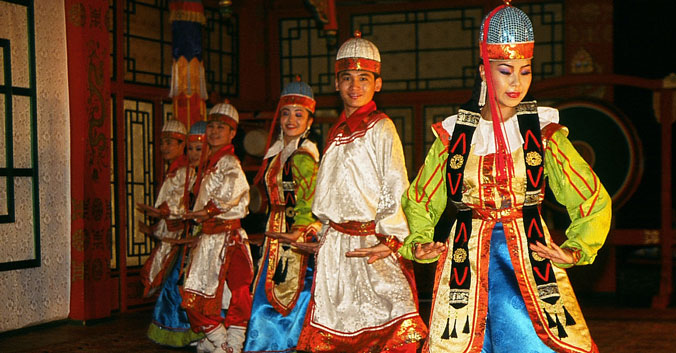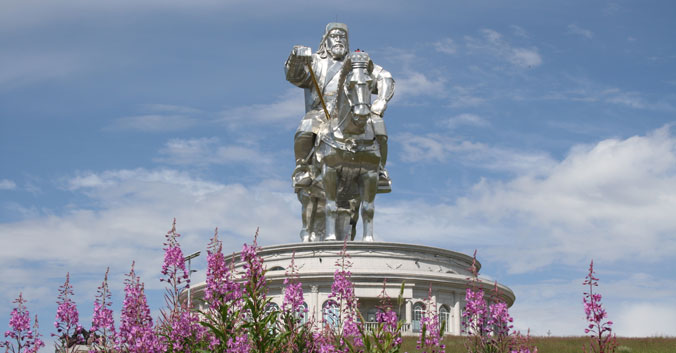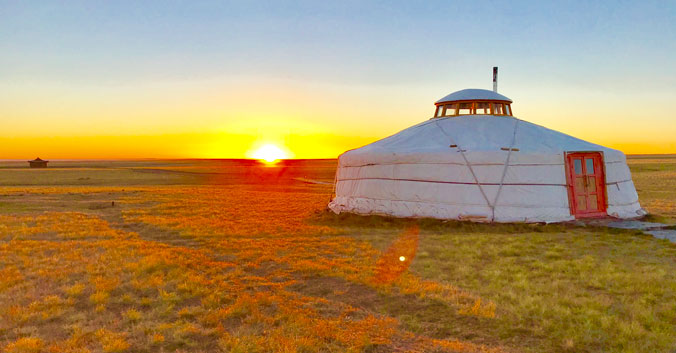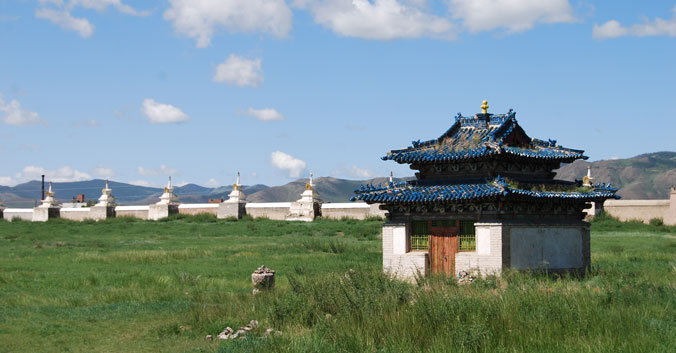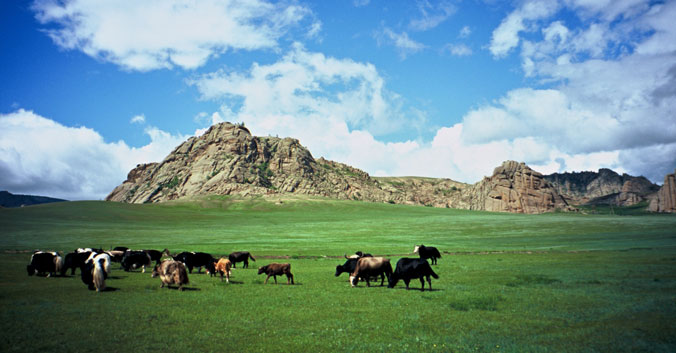Birds of Mongolia
by Sundev Gombobaatar
This first modern field guide to the diverse birds of Mongolia features 83 color plates, species descriptions, and maps.
Culture Smart! Mongolia
by Alan Sanders
A concise, no-nonsense guide to local customs, etiquette and culture with a short overview of the land and people along with practical travel advice.
Dinosaurs of the Flaming Cliffs
by Michael Novacek
Novacek pens an amazing tale of discovery in the Gobi Desert that captures the thrill of exploration and the challenges of field work as well as the story of paleontology and travel in the footsteps of the legendary Roy Chapman Andrews.
Eagle Dreams, Searching for Legends in Wild Mongolia
by Stephen Bodio
Charmed from a young age with Kazakh nomads, Stephen Bodio travels to Mongolia, circa 1990. The country has just celebrated its independence, but Bodio is more interested in traditional life as he explores the birthplace of falconry and observes the time-honored traditions that have survived the ages.
Genghis Khan and the Making of the Modern World
by Jack Weatherford
Weatherford interweaves his own travels and field work on the Central Asian steppe, much of it on horseback, with a lively portrait of Genghis Khan and the world of the medieval Mongols.
Genghis Khan and the Quest for God
by Jack Weatherford
With compelling evidence, top-notch historian Jack Weatherford argues that Genghis Khan used religious tolerance to offset fanaticism and hold his disparate territories together.
Genghis Khan, His Conquests, His Empire, His Legacy
by Frank McLynn
In this astute biography, McLynn measures the deeds of Genghis Khan against the conclusions of history. Although Khan and his Mongol hordes have the historic ill repute of being a bunch of criminals and thugs, McLynn captures Khan’s genius as an empire-builder and innovator.
Hunting With Eagles, The Kazakh Eagle-hunters of Mongolia
by Palani Mohan
In this collection of 90 dramatic images, award-winning photographer Palani Mohan celebrates the world of Mongolia’s Kazakh tribes, nomadic peoples who hunt on horseback with golden eagles. His duotone photographs and explanatory text show a way of life that is rapidly changing.
Lonely Planet Mongolia
by Michael Kohn
A comprehensive guide in the Lonely Planet style featuring 46 maps, background detail on the country and culture and practical information for the traveler.
Lonely Planet Mongolian Phrasebook
by J. Bat-Ireediu
A handy pocket guide to Khalkh Mongolian, the language spoken in Mongolia and surrounding parts of Russia and China.
Modern Mongolia, Reclaiming Genghis Khan
by Paula Sabloff (Editor)
This slim primer, richly illustrated with 120 color photographs, covers the sweep and excitement of 20th-century Mongolian history, the country's nomadic heritage and the legacy of Genghis Khan.
Mongolia Map
by Gizi Map
This attractive map (1:2,500,000) includes a small street plan of Ulaanbaatar.
Moving With The Seasons
by Liza Carter
Writer and photographer Carter collaborated with a Mongolian family in making this book, an intimate season-by-season account of nomadic Mongolian life on the steppe. Carter’s personable prose and excellent photography capture the people’s daily lives, in many ways still untouched by modernity.
Odyssey Guide Mongolia
by Carl Robinson
For this comprehensive illustrated guide, Robinson incorporates contributions from friends and colleagues, including American Museum of Natural History paleontologist Mark Norrell and Smithsonian ethnographer William Fitzhugh.
On the Trail of Genghis Khan, An Epic Journey Through the Land of the Nomads
by Tim Cope
Inspired by the nomadic tradition, award-winning adventurer Tim Cope travels by horseback across the entire length of the Eurasian steppe from Karakorum, the ancient capital of Mongolia, through Kazakhstan, Russia, Crimea and Ukraine, to the Danube in Hungary, documenting the unbounded hospitality of the people of the steppe.
The Blue Sky
by Galsan Tschinag
Set in the Altai Mountains of northern Mongolia, this novel confronts the clashes between the nomadic Tuvan people's ancient way of life and the pervasive influence of modern society. First of a trilogy that includes MGL78 and MGL77.
The Mongols, A Very Short Introduction
by Morris Rossabi
Rossabi, a leading historian, revises the popular perception of the Mongols as savage conquerors to show them as wise rulers who adopted shrewd economic policies, patronized the arts and helped foster peace in the lands they controlled.
The Secret History of the Mongol Queens
by Jack Weatherford
Weatherford (Genghis Khan and the Making of the Modern World) turns to the wives and daughters of the great medieval leader in this bold history of the women of the Silk Road.
Walking the Gobi
by Helen Thayer
Thayer weaves her experiences on a camel trek with a portrait of the region's nomadic cultures and natural history.
Wild East, The New Mongolia
by Jill Lawless
Lawless captures the startling contrasts of emerging technologies, MTV culture and crumbling Soviet heritage on the wide, open plains in this entertaining tale of life in modern Mongolia.





